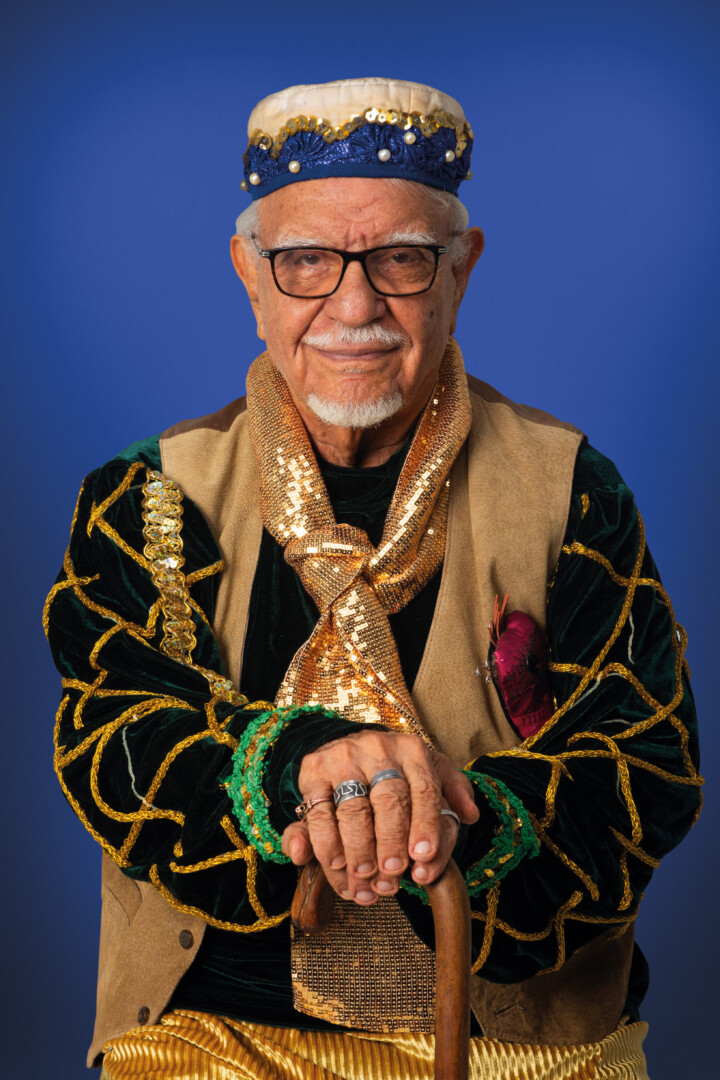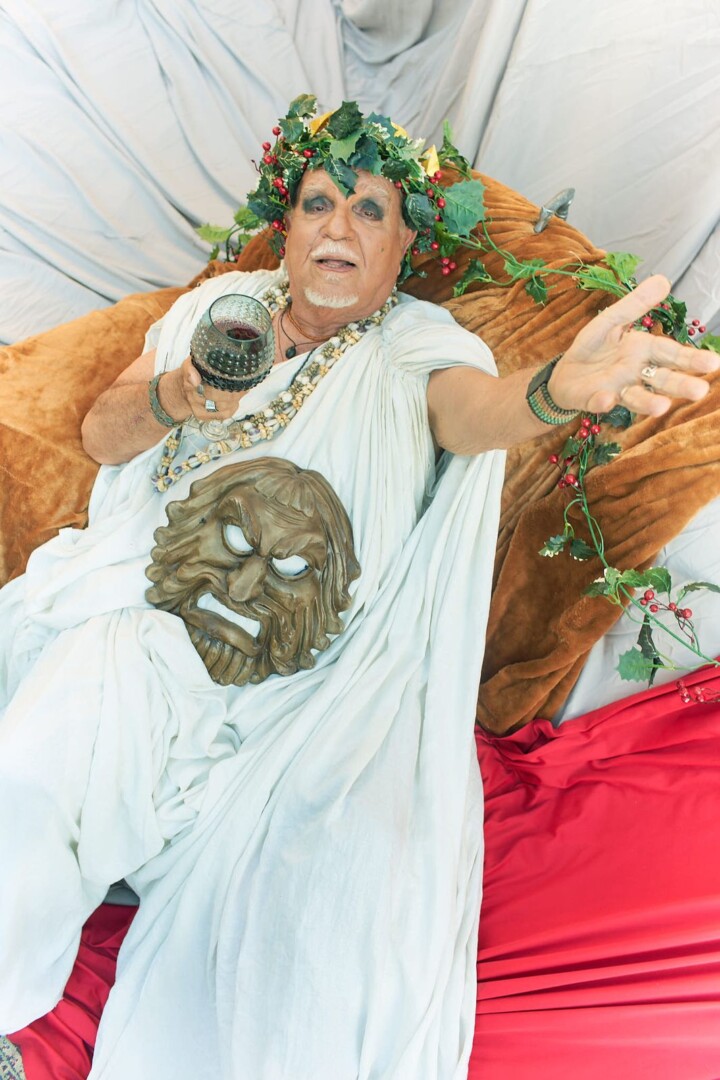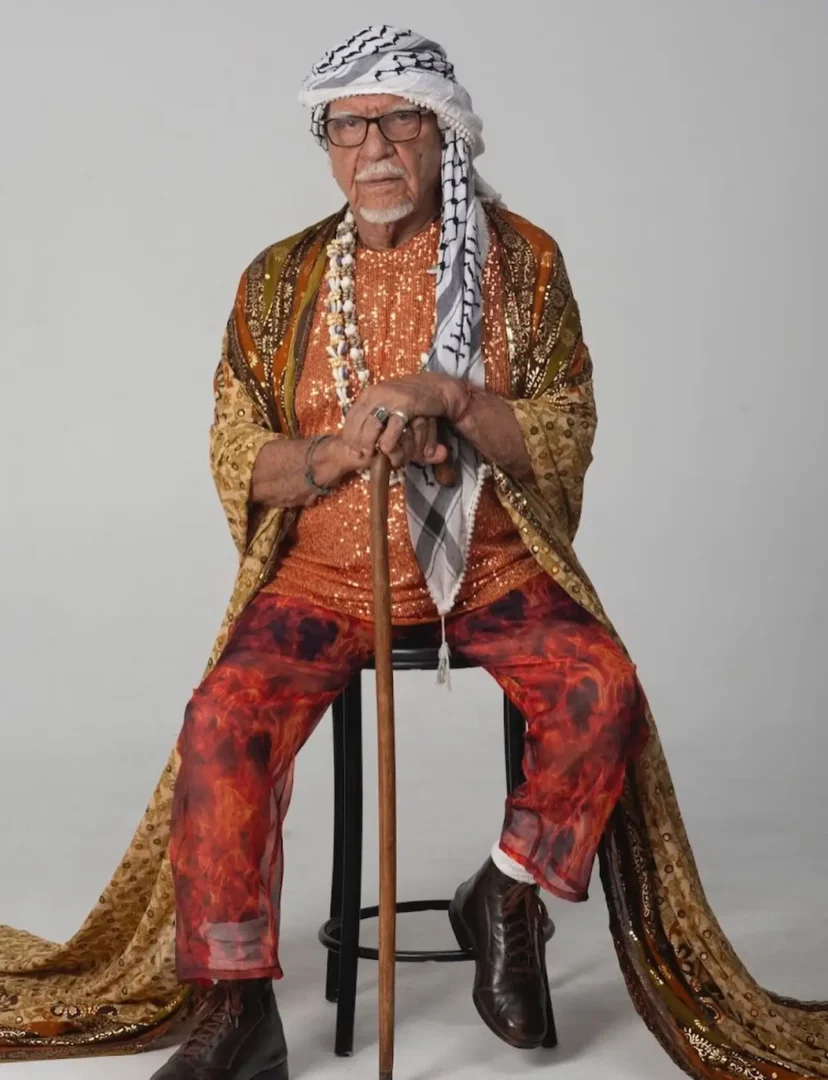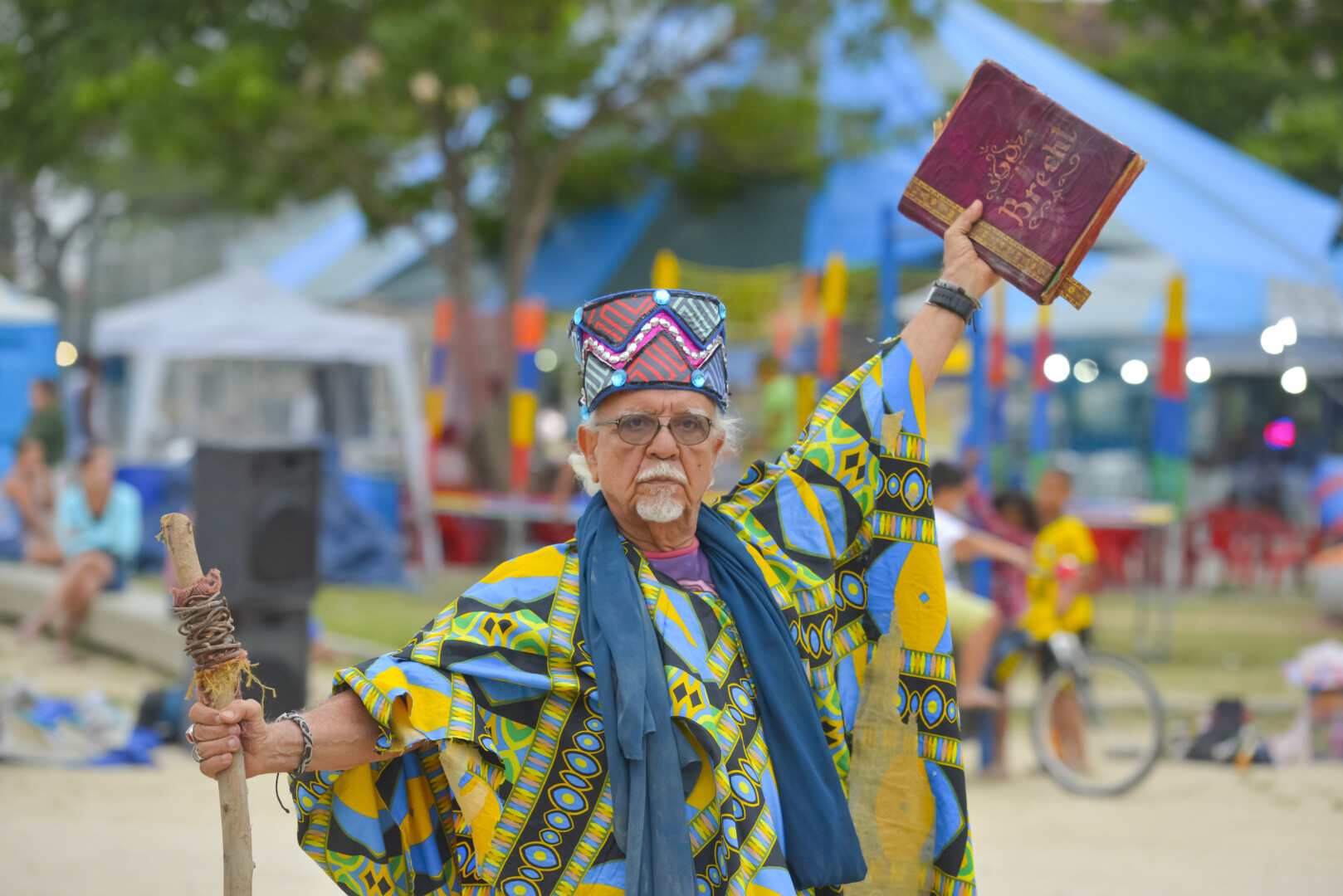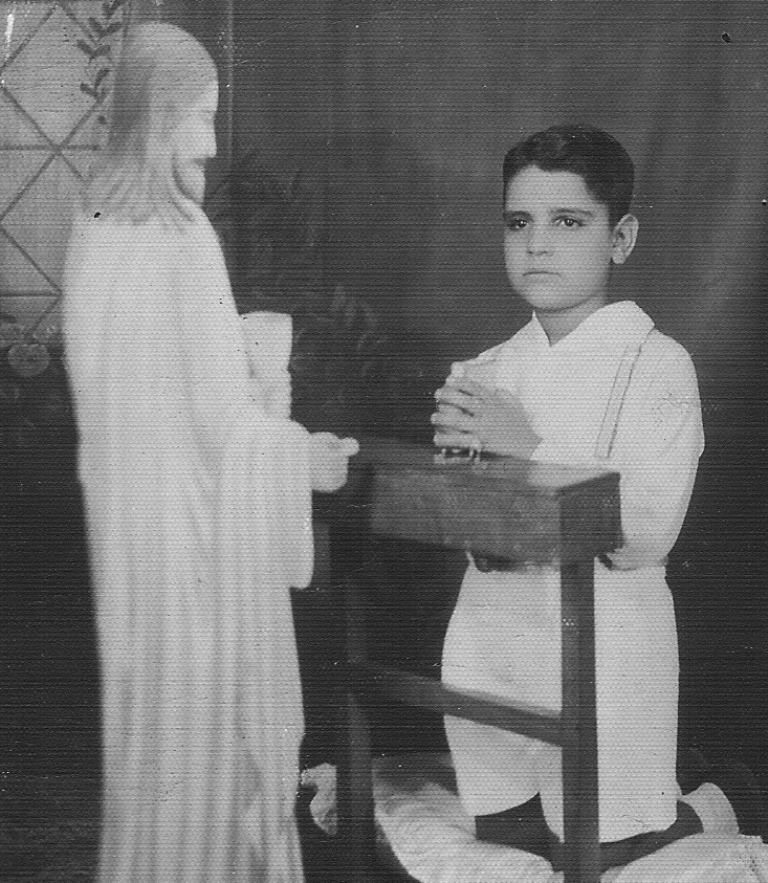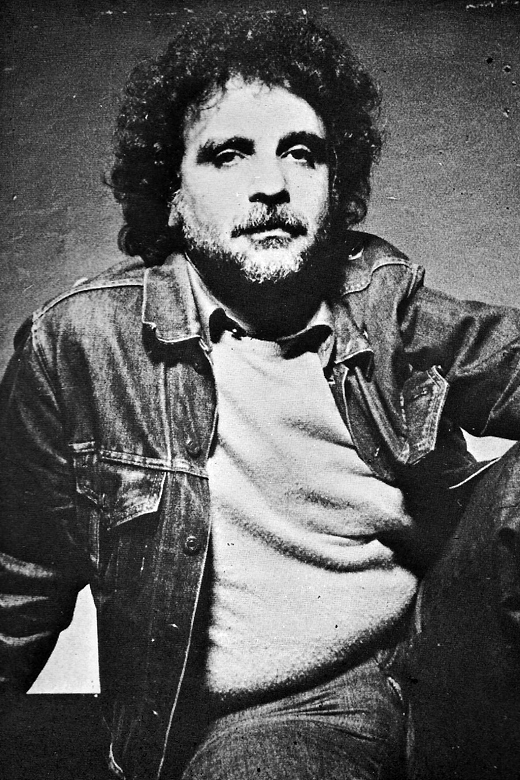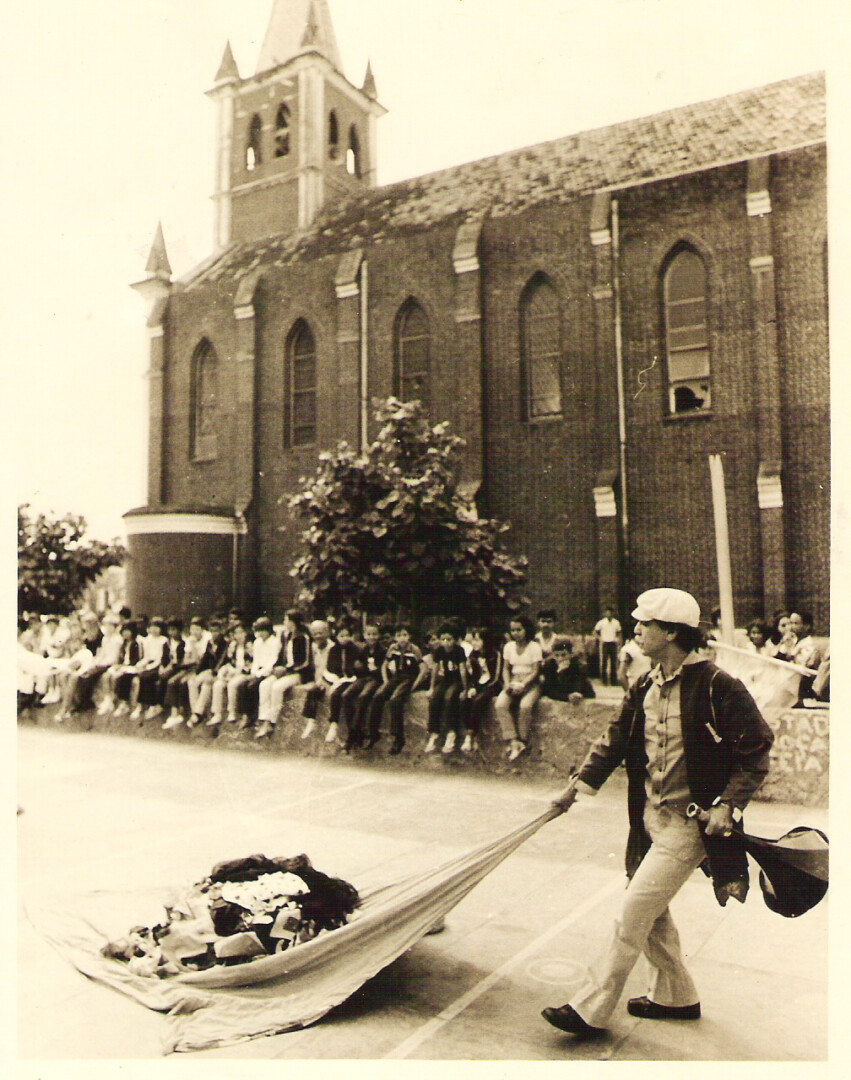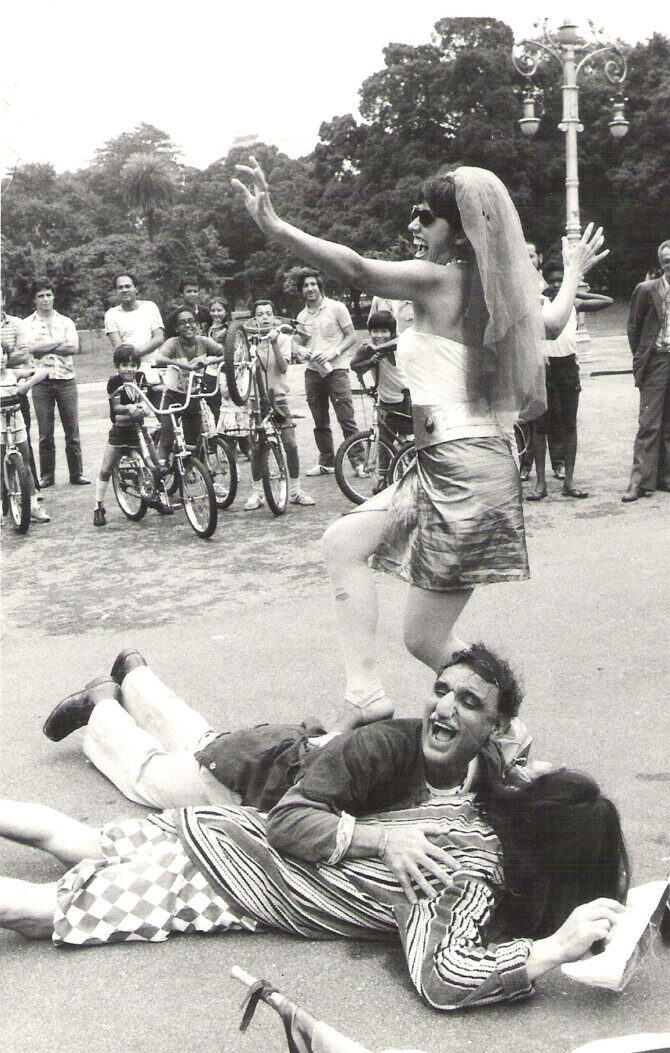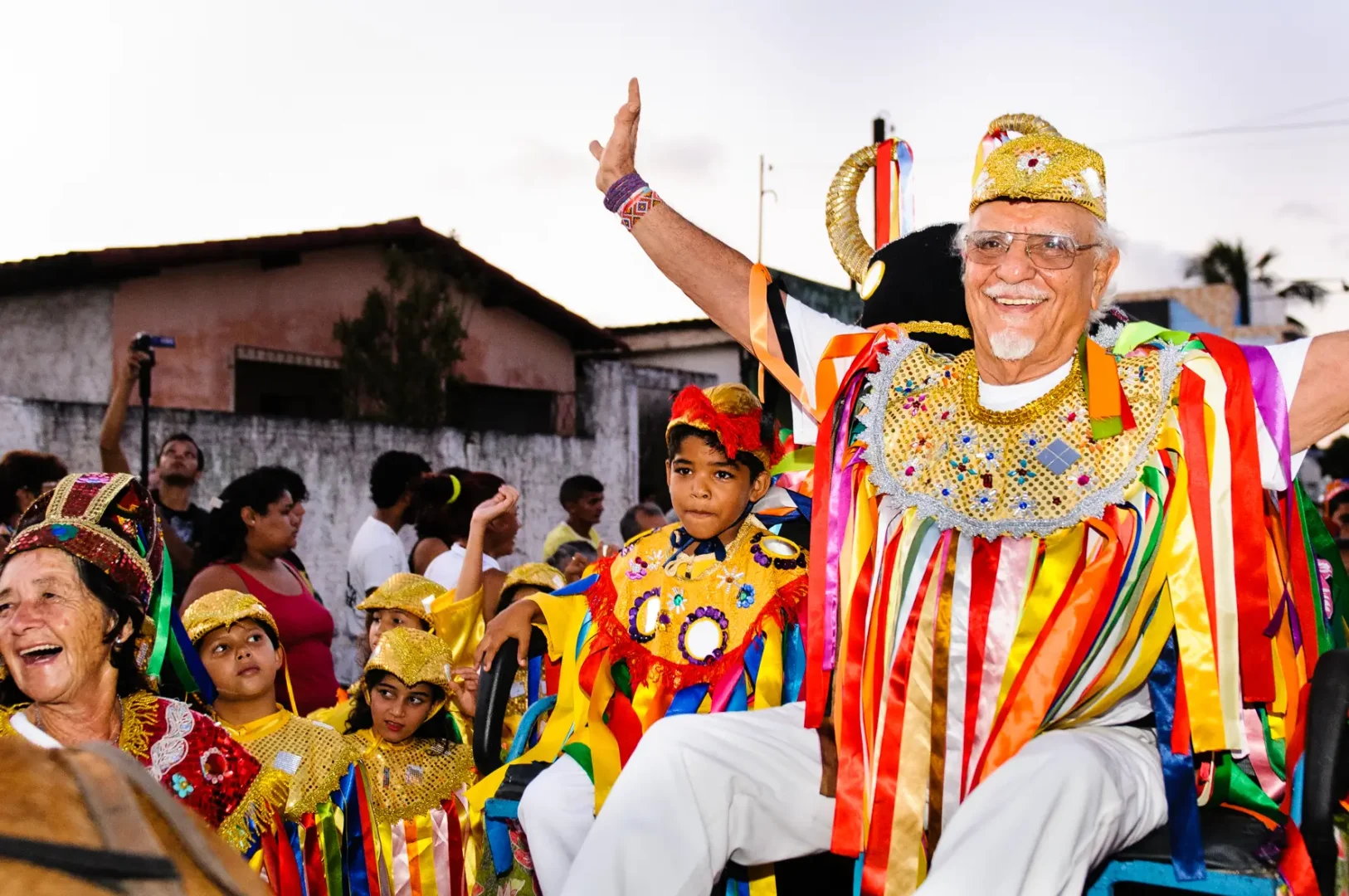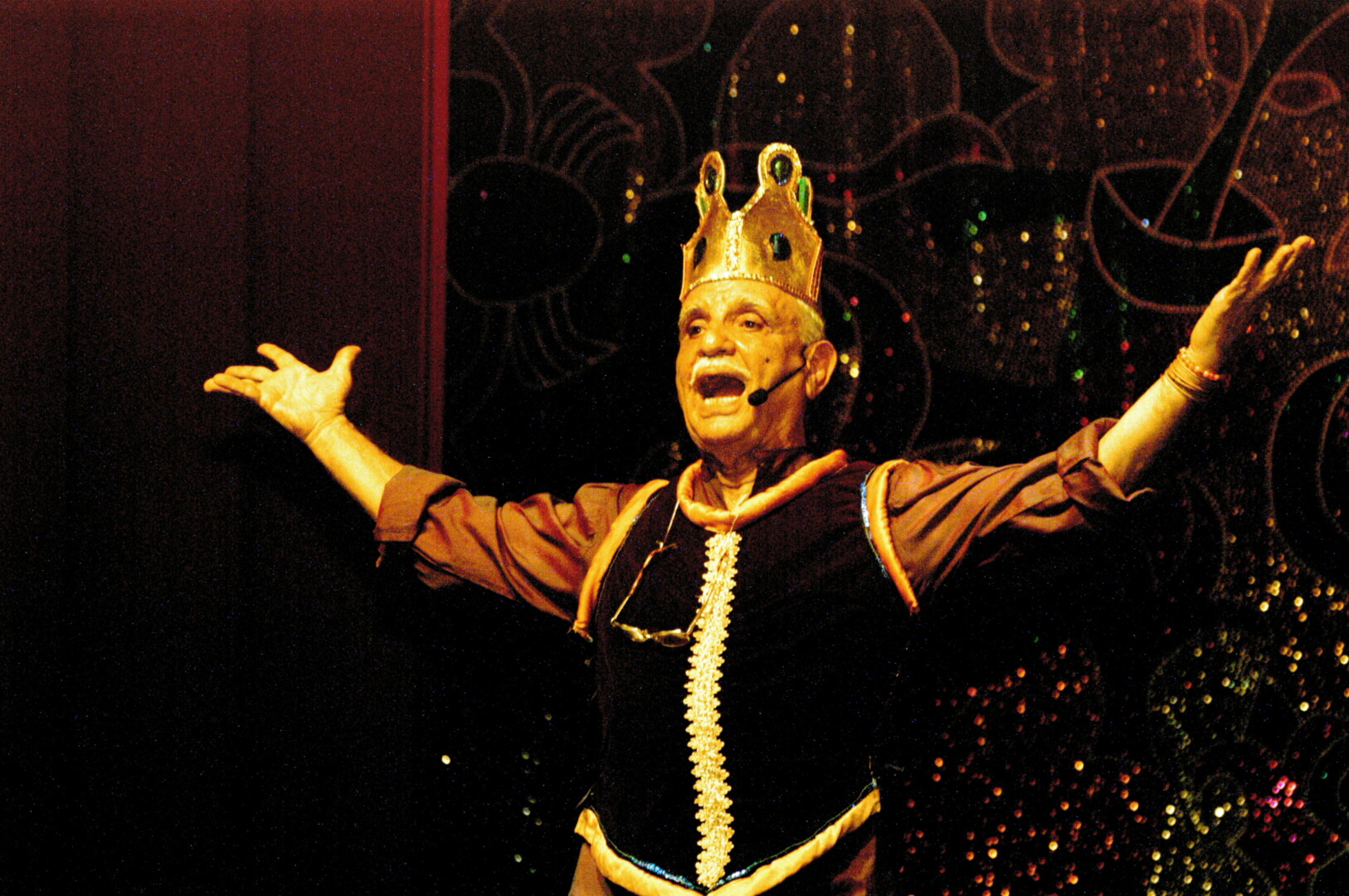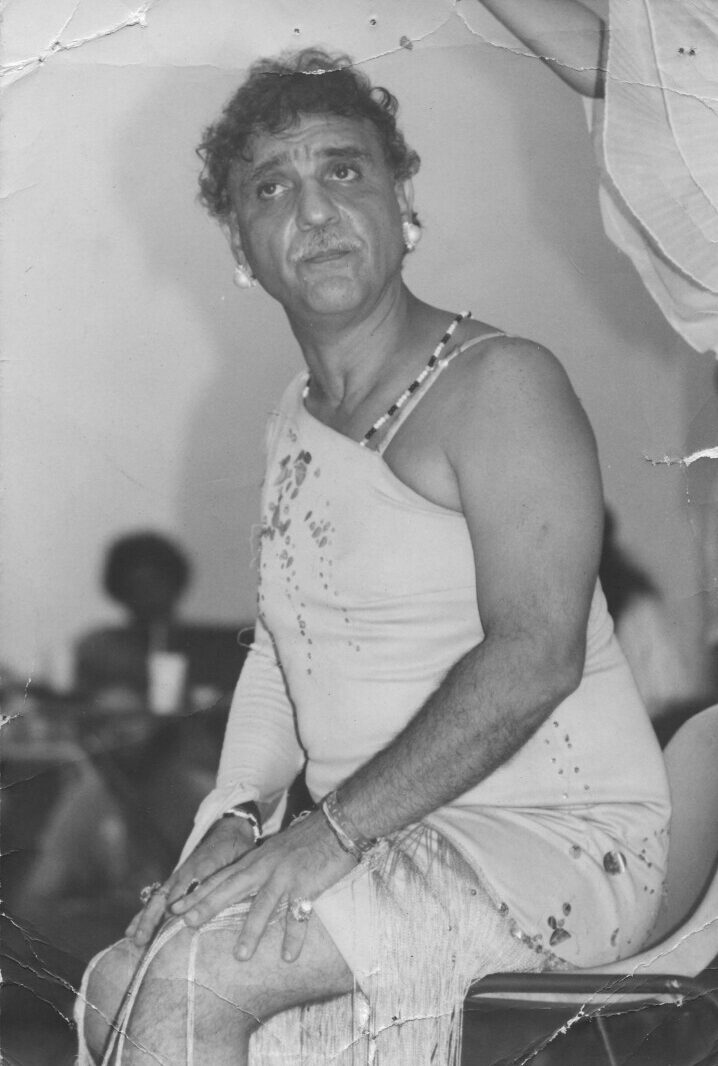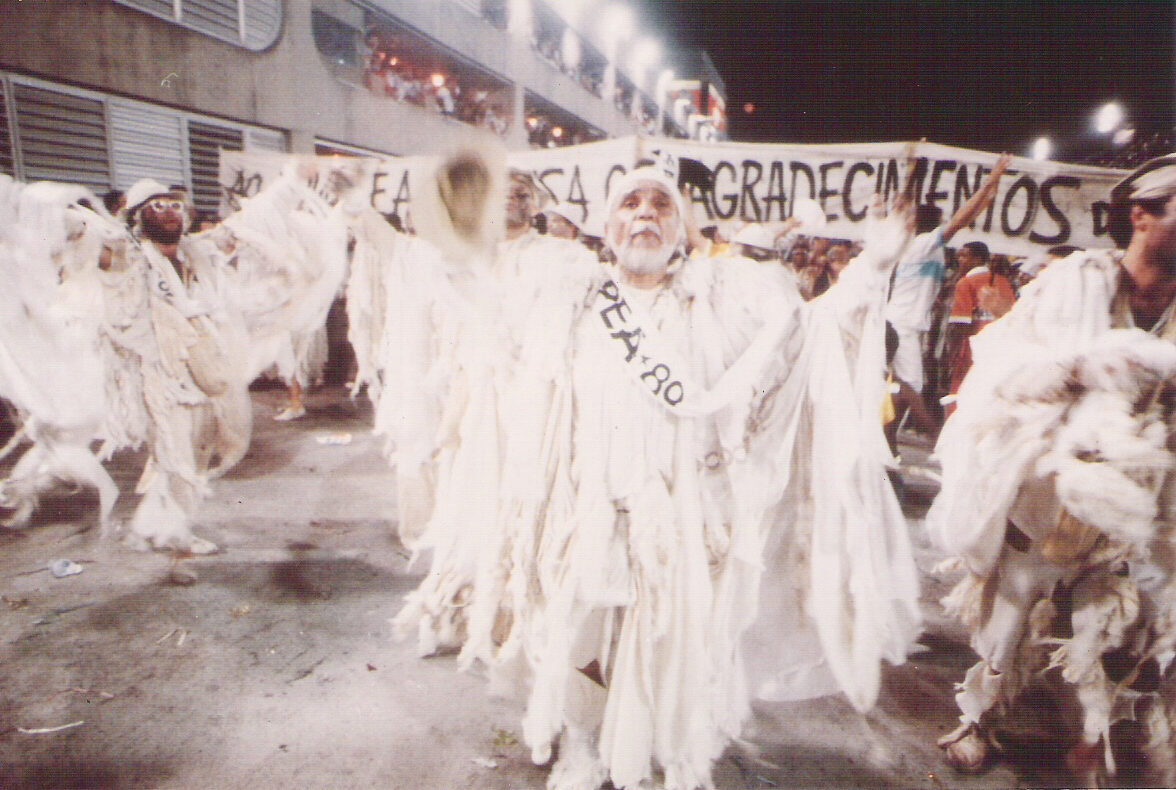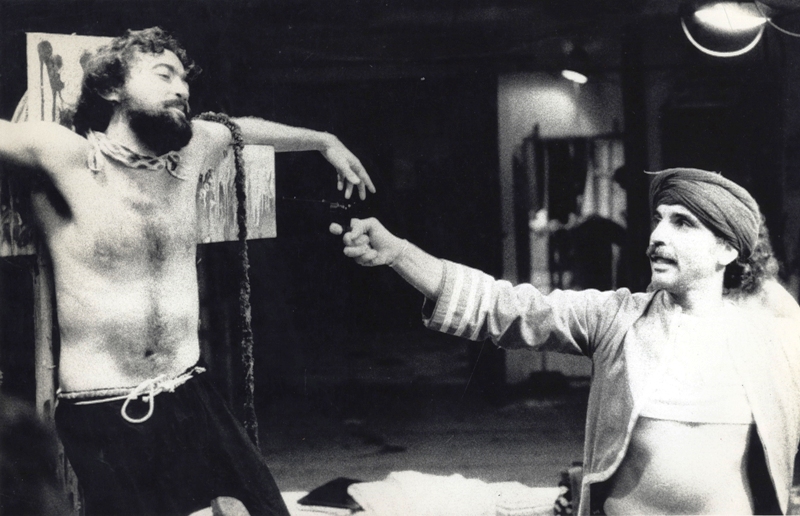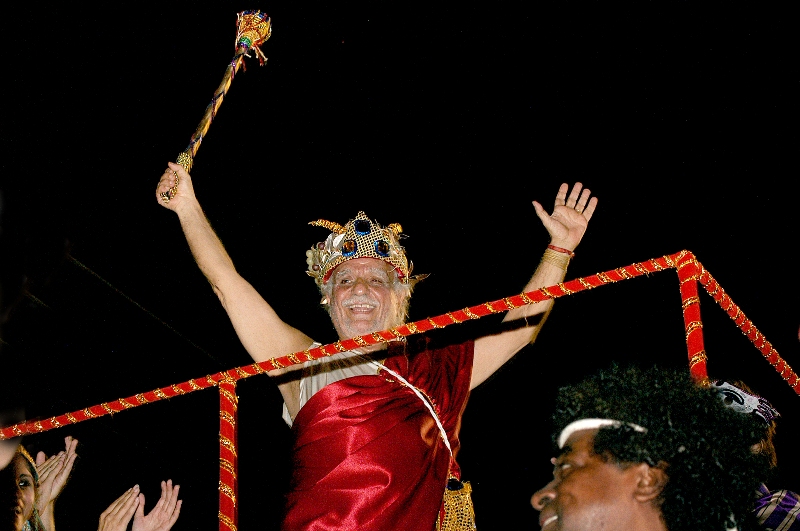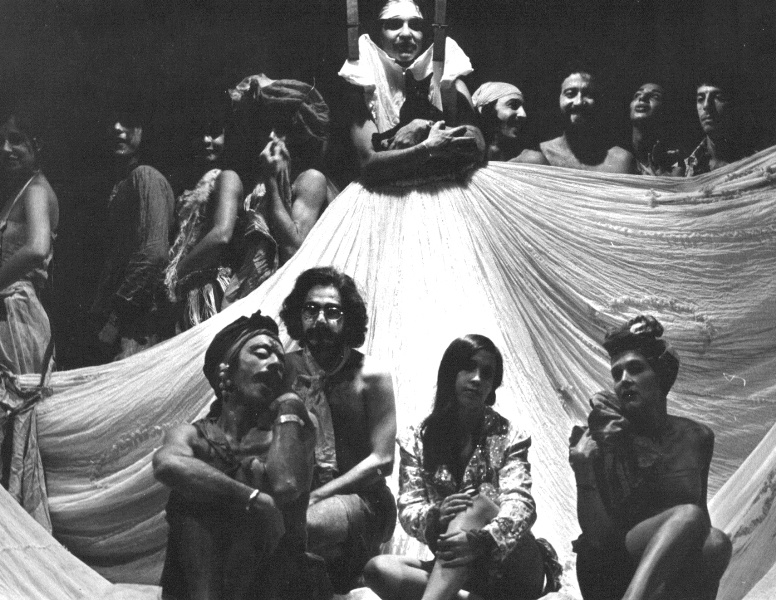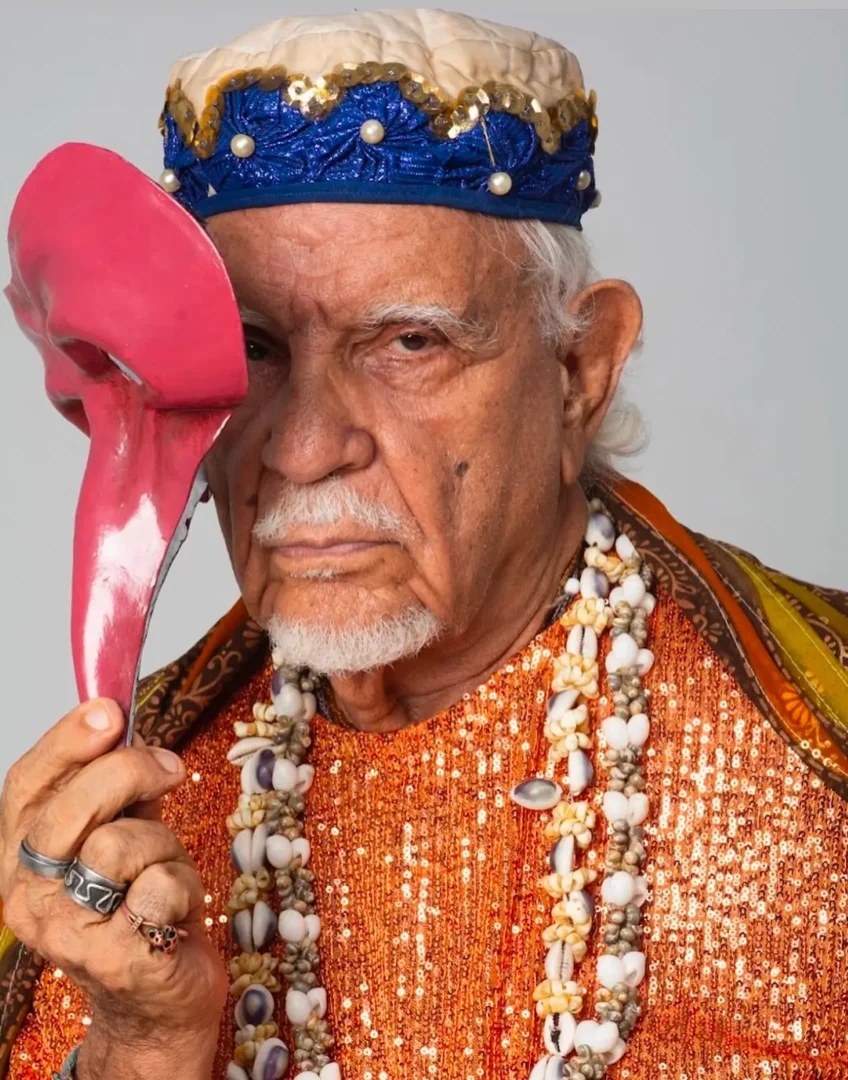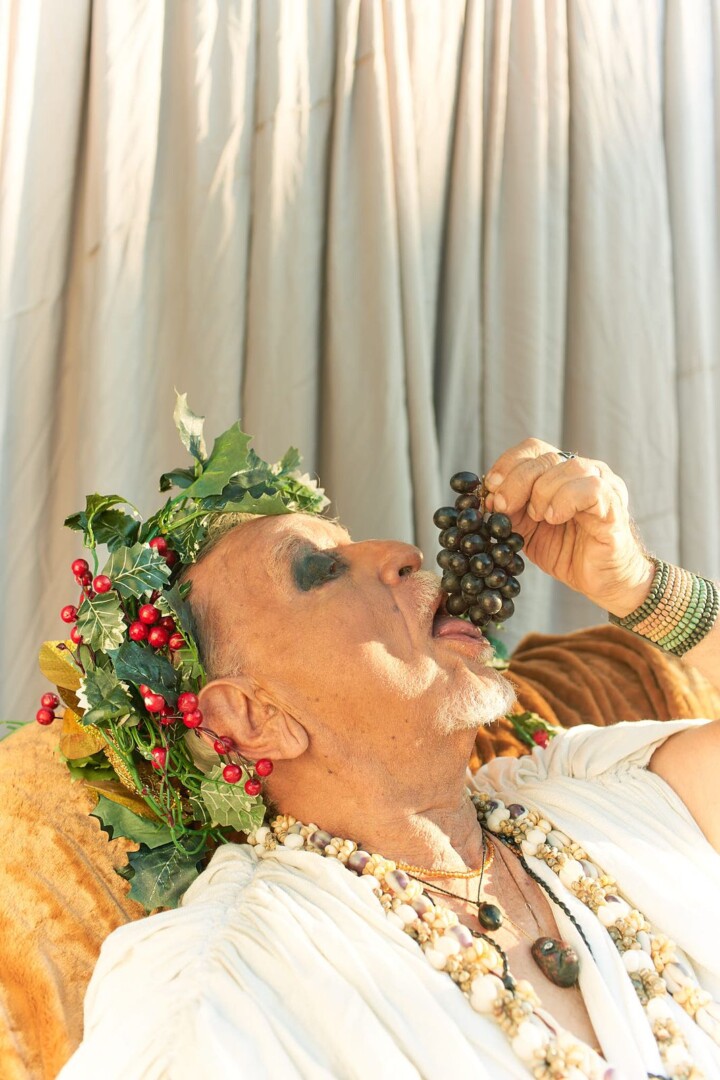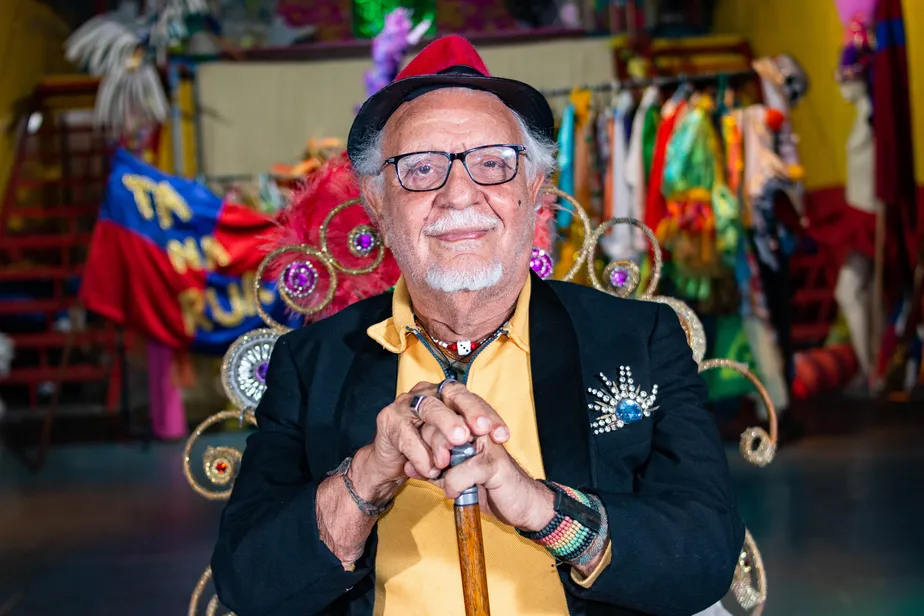Creator and mentor of the Tá na Rua Theater Group, Amir Haddad is a director, actor, and theater professor who has won several awards. Nationally and internationally recognized, he carries out work that seeks to recover the festive nature of Theater and the dramatic aspects of Popular Festivals.
His work is characterized by the deconstruction of conventional theatrical language, a process that began early, from contact with the dramatic expressions of Brazilian popular culture, in Belém/PA (1962), the issues posed by his practice, and which intensified in the 1970s, a period during which he directed alternative groups, spaces where it became possible to deepen his research and seek answers to the questions posed by the theatrical process: the unconventional arrangement of the scene; the open use of scenic spaces; the interaction between actors and spectators; the deconstruction of dramaturgy. A process and search that would solidify in his work as a director starting from the foundation of Tá na Rua, in 1980.
The more than sixty years of his theatrical work now provide a broader and deeper view of the paths Amir has chosen, thus making it possible to attempt to sketch a general framework that allows recognizing some important points that inform his thoughts on the actor, Theater, the World, and that, in some way, identify his work. This can be perceived in many of his speeches in interviews, testimonies, and even in texts of his own authorship.
What is found here are, thus, excerpts collected from some of these materials, with the intention of creating a space where his thoughts are exposed with the clarity that his speech offers us, without any interpretative distortions of any kind.
YM – You have been working on Agamenon for five months, when a play is usually rehearsed in about one month. Why?
AH – We have not been working on Agamenon for five months. We have been working with Agamenon for five months. We are not making a play that is normally done in about one month. What we are doing is, indeed, starting a type of interpretative research that has no determined duration and is not made for what is conventionally called a play. We are working with the actor. This means we have very little working time. Just five months. (“Agamenon: actor and his world in question”. Article by Yan Michalski, published in the Jornal do Brasil, on 07/06/1970)“Only theater saves” – saves through the collective aspects of theater work; to work with theater, we must act on the relationships within that group, work with the production of affections within that community, and that is what saves. (Amir Haddad – Carioca Testimonials, General Archive of the City of Rio de Janeiro, on 18/12/2022)
Carnivalize – on the meeting with Joãozinho Trinta
– It is a strong, important chapter, this one about Carnival in my life, because of this meeting I had with Joãozinho Trinta. When we met, I was working on a big project to carnivalize my theater; in the sense that in Carnival there is no authority; it dissolves. The mayor hands over the keys to the city to King Momo, who is another type of authority: the authority of the revelry, joy, fun, and freedom. The mayor relinquishes his power to make room for a new possibility of citizen manifestation outside the normal social control procedures to which we are subjected. So, Carnival is a proposal of freedom. And I wanted to carnivalize my theater, I wanted my actors to be as free as Carnival revelers; with identity, opinion, working together, developing, but without someone giving them orders. (Amir Haddad – Carioca Testimonials. Interview for the General Archive of the City of Rio de Janeiro, recorded on 18/11/2022, at Amir Haddad’s apartment in the Rio de Janeiro neighborhood of Santa Teresa).
Read More
Amir Haddad, son of Jorge Abrahão Haddad and Nassima Camillo Abrahão, both of Syrian descent, was born in Guaxupé/MG on July 2, 1937. At the age of 5, he moved with his family to Rancharia, in the interior of São Paulo (western São Paulo), and at 14, he went to the capital, São Paulo, to continue his studies, first at the Franklin Delano Roosevelt State School and later at the Law School of USP, at Largo de São Francisco.
It was at the schoolyard that he first saw a play: Uma mulher e dois palhaços, directed by José Renato, creator of Teatro de Arena, with Eva Vilma, Sérgio Brito, and John Herbert, and he became enchanted with the world of theater.
It is in the academic space, years later, that he meets José Celso Martinez Corrêa, Renato Borghi, and other students who, along with him, create the Oficina group in 1958 – a fact that leads him to abandon college. Amir wanted to be an actor but had failed the entrance exam for the Theater School, taken by Alfredo Mesquita. It is not in this group that his wish comes true. In this group, he can only become a director.
Initially, there was no intention of professionalization; the decision was to maintain it as a kind of theater laboratory. Many important issues were emerging in Brazilian theater at that time – including the search for a national theater with traits of Brazilian identity – and Oficina intended to contribute strongly to solving them by staging, preferably, works by Brazilian authors.
At the end of the 1950s, theater in Brazil was still taking its first steps toward strengthening itself; direction had a certain accent: all the great directors of the Brazilian Theater of Comedy (TBC), the hallmark of São Paulo and Brazilian theater, were foreigners: Alberto D’Aversa, Adolfo Celli, Gianni Rato, Ziembinski.
At the same time, Teatro de Arena, founded by Zé Renato Pecora (1953), had already staged Eles não usam black-tie, by Gianfrancesco Guarnieri, depicting the daily life of the working class, and was following its own path, holding the Dramaturgy Seminars created by Augusto Boal, discussing a line of action, presenting an ideology.
Shortly after its formation, the Oficina acquired a headquarters, the Teatro Novos Comediantes, at Jaceguai 520. There, Amir directed the group’s first play, formed by the works A Ponte, by Carlos Queiroz Telles, and Vento Forte para Papagaio Subir, by José Celso Martinez Corrêa (1958). In 1959, the group staged A Incubadeira, also by José Celso Martinez Corrêa, a play that won several awards at the II Festival Nacional de Teatro do Estudante, organized by Paschoal Carlos Magno: best author, best actress (Etty Fraser), and for Amir, best director.
It was also with this play that Oficina was invited to perform at the Teatro Arena in São Paulo, which at that time became the focal point for discussions about the transformations needed for the development of Brazilian theater. Simultaneously, it offered an unconventional theatrical space where actor-audience relationships were established in a non-frontal way. From this period onward, the desires regarding the professionalization of the group changed and intensified. Zé Celso led the group that aimed for professionalization; Amir led the group that wanted to remain experimental. Amir and other actors were excluded from the group.
For a while, without a working group, Amir started working in professional theater, directing some plays, such as Se meu apartamento falasse, Ilha nua, and Quarto de despejo, by Carolina de Jesus.
In 1962, he was invited to participate, as a directing teacher, in the establishment of the Curso de Formação de Ator do Serviço de Teatro da Universidade Federal do Pará/UFPA, in Belém, a course that later led to the creation of the UFPA School of Theater.
The move to Belém was transformative, not only because it exposed Amir to a cultural and social reality completely different from São Paulo, but also because it required a deepening of his knowledge of theater, and mainly, because it brought him face-to-face with the issue of actor training. It was also in Belém that he came into contact with regional cultural events and popular dramatic expressions, such as the birds, which became decisive for bringing his work closer to the popular question.
A new focus of interest also emerged: in addition to the research aspects, already present from the beginning, issues related to education, particularly in terms of the formative aspects it covers, were now added. Through the contributions he offered, Amir found a space where he could experiment, create, and nurture his reflections, continuously linking himself to the processes of acquiring and developing new knowledge about theater, present in theater groups, courses, workshops, as well as in his work as a teacher in theater schools.
Thus, besides the numerous plays he directed, his work is marked by his role as a teacher, and among the many activities he developed, we can highlight his involvement in the Escola de Teatro Martins Pena, the Curso de Teatro da FEFIERJ (Federation of Federal Integrated Schools of the State of Rio de Janeiro) (1966/1973), and his important participation in the Centro de Artes de Laranjeiras – CAL, where he acted several times as teacher-director of the students’ final course projects. In 1988, he was invited as a Pedagogue at the International Theater School for Latin America and the Caribbean – ITALC, in Havana (Cuba), participating in the Tercer Taller, whose development theme was Tecnicas actuales de creación teatral en America Latina y el Caribe.
Also, working groups became a constant in his career. In 1965-66, already living in Rio de Janeiro, he took over the direction of the Theater of the Catholic University of Rio de Janeiro, TUCA-Rio, where he served as artistic supervisor of the group, actively participating in all stages until the choice of the dramatic poem O Coronel de Macambira, by Joaquim Cardoso, inspired by the auto-dramatic of Bumba Meu Boi from Pernambuco and Maranhão, which was the second production of TUCA (1967). With the advent of AI-5 in 1968, the group, marked by engagement and intense political mobilization, was unable to continue and suspended its activities.
In 1968, together with director Paulo Afonso Grisolli, Marcos Flaskman, Tite Lemos, and others, Amir Haddad organized the group A comunidade, installed in one of the rooms of the Museum of Modern Art/MAM-RJ, with former students from the FEFIERJ Theater Course and other actors, and which staged the play A construção, by Altimar Pimentel, winner of the 1969 Molière Award. In this play, the aesthetic proposals Amir had been deepening as a director were strongly concentrated, including the fusion of stage and audience, aiming for an interaction between actors and spectators.
In the 1970s, dissatisfied with the working spaces offered by professional theater, where he continued to work, Amir staged the play Somma or Melhores Anos de nossas vidas (1974), intending to make an inventory of his work. Despite having the texts cleared by the Censorship Board, the play was censored shortly after its debut due to the open, improvised language with which it was performed.
After the censorship of the play, a group of actors who had participated in the production decided to stay with Amir to deepen issues related to theatrical language. This group, which underwent changes with some participants leaving and others joining, settled in a room at the DCE of UFF, in Niterói, and soon structured itself as the Grupo de Niterói. The continuation of this research became the basis for the creation of the Grupo Tá na Rua in 1980, through which Amir brought the art of theater to the public, open spaces of streets and squares, emphasizing the importance of publicly accessible art and its power for social, cultural, and urban transformation. It is here that the process of synthesizing his research begins, with a deeper focus on issues related to space and the actor, as well as the structuring of the group’s carnivalizing language.
From 1992/1995, although the activities of Tá na Rua continued as usual, Amir, along with Antonio Pedro, Ricardo Petraglia, and Anselmo Vasconcelos, organized the Teatro da Universidade do Estado do Rio de Janeiro – TUERJ, which even staged its first production, but was later discontinued.
In 2017, fifty years after the staging of Coronel de Macambira by TucaRio, Amir Haddad participated, along with former members of the collective, in the founding of TUCAARTE – TUCA Art and Culture Association, to revive cultural work. The new phase aims to keep the memory of the good and bad moments experienced in the 1960s alive, and to achieve this, they created the play Re-Acordar, with a script developed by Amir from the actors’ narratives, and with the original soundtrack
